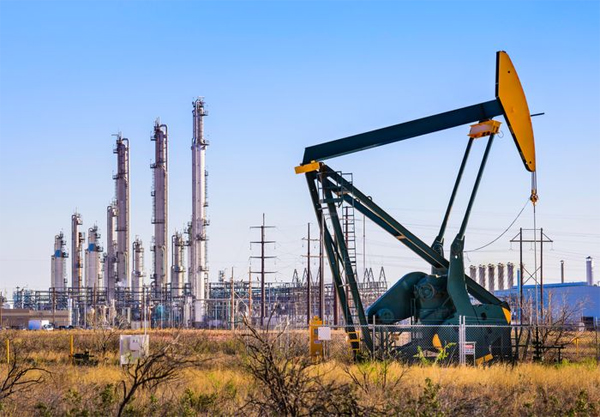
Myra P. Saefong and Williams Watts, MarketWatch
SAN FRANCISCO/NEW YORK
EnergiesNet.com 10 24 2022
Oil futures settled lower on Monday, pressured by expectations for a decline in energy demand from China after a round of lackluster import data and the conclusion of the Communist Party’s national congress.
Natural-gas futures, meanwhile, finished higher, recouping a portion of last week’s steep losses which came on the heels of warmer-than-usual U.S. weather forecasts.
Price action
- West Texas Intermediate crude for December delivery CL.1, -1.16% CL00, -1.16% CLZ22, -1.14% fell 47 cents, or nearly 0.6%, to settle at $84.58 a barrel on the New York Mercantile Exchange.
- December Brent crude BRNZ22, -1.20%, the global benchmark, was down 24 cents, or 0.3%, at $93.26 a barrel on ICE Futures Europe. January Brent BRN00, -1.10% BRNF23, -1.12%, the most actively traded contract, shed 13 cents, or 0.1%, to $91.21 a barrel.
- Back on Nymex, November gasoline RBX22, -1.32% rose 2.6% to $2.7302 a gallon.
- November heating oil HOX22, -1.01% ticked up 2.3% to $3.9201 a gallon.
- November natural gas NGX22, -0.65% climbed 4.8% to $5.199 per million British thermal units after a weekly fall of 23%.
Market drivers
Oil rose last week, based on front-month contracts, with WTI up 0.5% and Brent rising 2%, after the Biden administration released another 15 million barrels of crude from the Strategic Petroleum Reserve. The administration also said it would begin replenishing the reserve when prices dipped toward $70 a barrel, helping to establish a floor that would give domestic producers confidence to boost production.
Data released Monday, a week behind schedule, showed that China’s September crude imports were down 2% from a year earlier, Reuters reported, as independent refiners slowed throughput.
Meanwhile, the Communist Party’s national congress awarded China President Xi Jinping a third five-year term as the party’s general secretary, doing away with a custom that has limited past leaders to 10 years in the top spot. The congress was seen consolidating Xi’s grip on power.
The congress saw no change announced in China’s zero-COVID policy, which has resulted in large shutdowns in an effort to control the spread of the virus and has been blamed for crimping crude demand. Hong Kong stocks saw their worst single-day performance since the 2008 financial crisis, with the Hang Seng Index HSI, -0.10% dropping more than 6% to a new 13-year low.
“China’s zero-COVID approach looks set to continue until at least next spring,” said Harry Altham, energy analyst, EMEA & Asia for StoneX Group.
Concerns are primarily centered around the composition of President Xi’s new Standing Committee, which commentators describe as being made up of ‘loyalists’,” he wrote in Monday commentary. The lineup has fueled “speculation that tackling COVID and maintaining national security are being prioritized above economic considerations, which is depressing the oil demand outlook in the world’s second highest consuming nation.”
Meanwhile, a rising U.S. dollar along with uncertainty over global demand continues to weigh on commodity prices, said Walid Koudmani, chief market analyst at XTB, in a note.
“From a technical point of view, the price of oil remains in a very interesting spot as both Brent and WTI are testing key support levels which managed to halt previous strong downward moves despite the price being below” longer-term moving averages, he wrote.
“Furthermore, the situation could continue to be volatile, which could lead to another attempt to rebound from the current levels if sentiment and demand forecasts manage to improve despite the ongoing economic slowdown and troubling macroeconomic data,” Koudmani said. “In either case, a breakout in either direction could set the tone for the market in the short term in this time of increased volatility.”
marketwatch.com 10 24 2022











